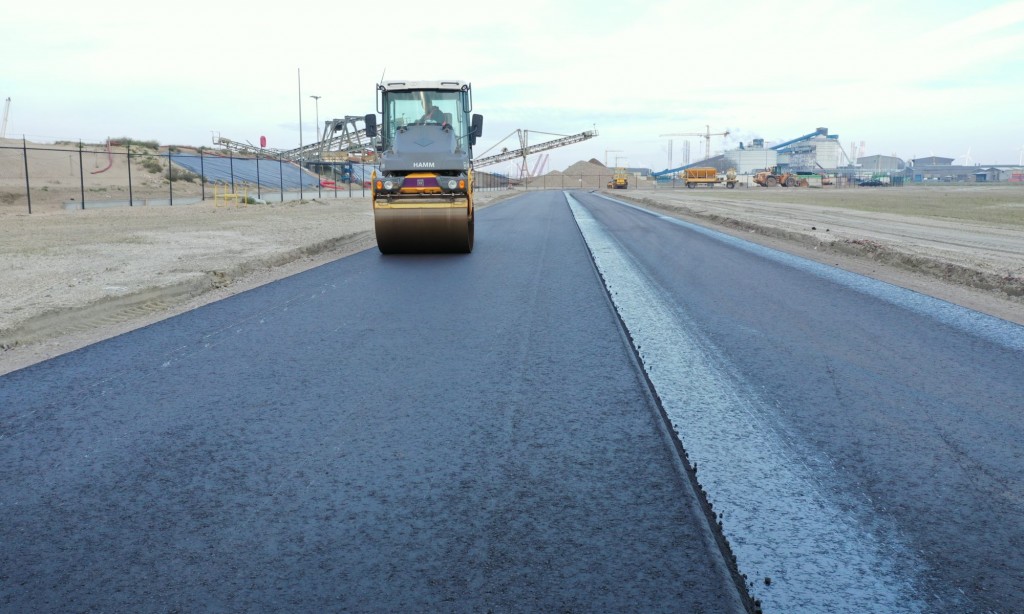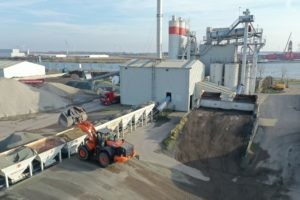
In this bio-asphalt, fossil bitumen has been replaced by lignin of biobased origin. In the various layers this asphalt is used in different compositions and partly also mixed with recycled asphalt. Never before had a complete road construction consisted of this composition. Until now, test strips have been laid in the Netherlands of which only the top layer contains lignin.
Greening road construction
The construction of this road is part of the CHAPLIN-XL project. CHAPLIN stands for Collaboration in aspHalt Applications with LIgniN: a consortium that wants to contribute to the greening of road construction. The lignin for this project is partly made in the Netherlands by the green chemistry company Avantium. The asphalt producing partners of CHAPLIN-XL will improve the processes in their asphalt plants, allowing the technology of lignin-based asphalt to be scaled up to TRL 6/7. This asphalt technology was developed by two CHAPLIN-XL partners: Wageningen Food and Biobased Research and Asfalt Kennis Centrum.

The different variants of asphalt that have been laid in Vlissingen and elsewhere are extensively tested for health and safety and environmental aspects. Extensive life cycle analyzes will map out the environmental performance and climate benefits across the entire chain. The techno-economic feasibility is also analyzed. Martin Junginger, professor of Biobased Economy at Utrecht University and project coordinator of CHAPLIN-XL: “The opportunities that bio-asphalt offers are recognized nationally and internationally. In order to be able to use lignin on a large scale in the future however, it is necessary that road builders can submit financial and technical substantiation when tenders are being awarded. In addition, it is important to gain a good understanding of the overall climate and environmental performance of lignin-based asphalt. We will be collecting an important part of the information for this in the coming months. ”
Chain-wide collaboration
The fact that the Netherlands is leading the way in making road construction more sustainable is partly due to the unique collaboration of partners along the entire value chain, supported by research and technology parties. Rijkswaterstaat, provinces and municipalities are strongly involved as road authorities. Joop Groen, initiator and program leader from the Circular Biobased Delta foundation: “In this specific project are Utrecht University (UU), Asphalt Knowledge Center (AKC), Avantium Chemicals BV. (AVT), Circular Biobased Delta (CBBD), H4A, Roelofs Wegenbouw bv, Wageningen Food and Biobased Research (WFBR). However, CHAPLIN-XL boosts collaboration within the entire CHAPLIN consortium, also with the other partners. ”
Source
Circular Biobased Delta foundation, press release, 2020-12-09.
Supplier
Avantium Technologies B.V.
Biobased Delta
H4A
Rijkswaterstaat
Utrecht University
Wageningen University
Share
Renewable Carbon News – Daily Newsletter
Subscribe to our daily email newsletter – the world's leading newsletter on renewable materials and chemicals












